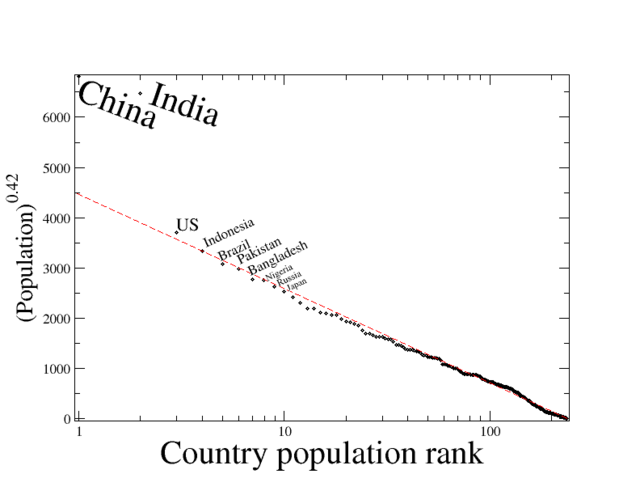Loading AI tools
Phenomenon in statistics where highest-ranked data points are outliers From Wikipedia, the free encyclopedia
In statistics, economics, and econophysics, the king effect is the phenomenon in which the top one or two members of a ranked set show up as clear outliers. These top one or two members are unexpectedly large because they do not conform to the statistical distribution or rank-distribution which the remainder of the set obeys.

Distributions typically followed include the power-law distribution,[2] that is a basis for the stretched exponential function,[1][3] and parabolic fractal distribution. The King effect has been observed in the distribution of:
Note, however, that the king effect is not limited to outliers with a positive evaluation attached to their rank: for rankings on an undesirable attribute, there may exist a pauper effect, with a similar detachment of extremely ranked data points from the reasonably distributed portion of the data set.[citation needed]
Seamless Wikipedia browsing. On steroids.
Every time you click a link to Wikipedia, Wiktionary or Wikiquote in your browser's search results, it will show the modern Wikiwand interface.
Wikiwand extension is a five stars, simple, with minimum permission required to keep your browsing private, safe and transparent.